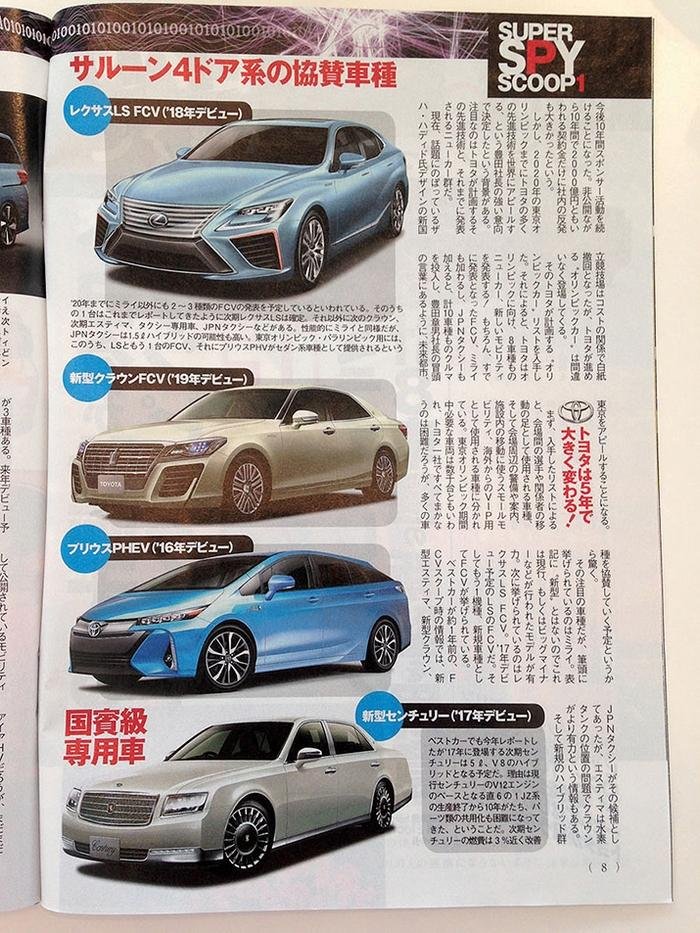Toyota Plans Olympic All-Stars, Report Says

The product blitz will showcase Toyota's lineup and help the world's biggest automaker to milk a 10-year Olympic sponsorship deal -- announced in March and running through 2024 -- for all its worth.
As part of the push, Toyota plans at least eight vehicles that highlight modern mobility, Japan's Best Car magazine reported.
They include versions of the Lexus LS and Japan-market Toyota Crown sedans equipped with variants of the hydrogen fuel cell powertrain used in the recently released Toyota Mirai, Best Car said.
A Toyota spokesman declined to comment on the magazine's report, saying the company couldn't discuss future product plans. But he said the 2020 Olympics mark a "mental and philosophical milestone" for the company.
Toyota engineers intend to deploy fuel cell drivetrains beyond the Mirai, the spokesman added.
The Olympic Games have long favored using zero-emission electric vehicles to accompany events such as the marathon, given concerns over the quality of the air athletes must breathe.
The LS fuel cell would debut by 2018 while the Crown fuel cell arrives the following year,Best Car said. Renderings published by the magazine show both vehicles with the gaping side air intakes that appear on the front fascia of the Mirai.
Toyota may roll out a fuel cell version of its next-generation Estima minivan, the magazine reported.
Also on tap is a taxi based on the JPN Taxi Concept that debuted at the 2013 Tokyo Motor Show. Such an entry could replace the boxy Crown Comfort cabs that are ubiquitous throughout Japan.
Another image car in line for a revamp is the old-school Toyota Century, the grand dame of Japanese limousines and a car that hardly has been updated since its second generation debut in 1997.
A redesign is expected in 2017 that will replace the current version's V-12 engine with a 5.0-liter, V-8 hybrid drivetrain. That will boost fuel economy 3 percent, Best Car said.

Toyota also is planning full redesigns of its Japan-market van lineup: the Toyota Noah, Voxy, Alphard and Vellfire. Those vans would be offered as hybrids, Best Car said.
Throw into the mix a plug-in version of the fourth-generation Prius hybrid. That vehicle is expected to arrive next year.
All of these cars will be front and center at the Olympics, ferrying athletes, VIPs, officials and spectators to and from events. Toyota's sponsorship deal means national and global Olympic activities will use the automaker's vehicles exclusively.
Toyota and other Japanese carmakers have been considering ways to make the Tokyo Olympics a showcase for their products. But the sponsorship deal ensures Toyota dominates the stage.
Aside from Toyota's hydrogen-powered vehicles, connected cars and autonomous-driving technologies are expected to feature prominently. Personal mobility runabouts, such as Toyota's three-wheeled, scooterlike i-Road, likely will be on show, too.
Indeed, Best Car reports Toyota will offer up the i-Road as well as its two-wheeled Segway-like Winglet for use by security personnel and visitor guides at the games.
The stakes could be high. The Olympic Games will require the service of several thousand fleet vehicles, including several hundred of the one-person mobility runabouts, Best Car said.
Related News


